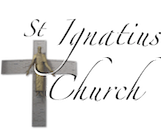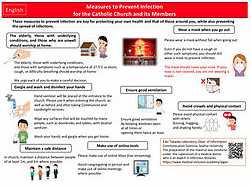
Answering Jesus Individually and as Church
There are two things to take to heart from today’s Gospel. One is Jesus’ question “Who do you say I am?” and the other is an image of leadership in the Church.
When Jesus asks his disciples what people in general are thinking of him, he is given the latest rumors. Jesus has impressed people as some sort of prophet, like the biblical prophets Elijah or Jeremiah. Some have even compared Jesus to the more recent John the Baptizer. The disciples are aware of what is going on around them. But then Jesus puts them on the spot by asking directly, “Well, who do you men think I am?” It’s a question addressed to the whole group of disciples present, but it is Peter who has the heart and the courage to reply, “You are the Christ, the Son of the living God.”
We might wonder what Peter meant by these words. The “Christ” was the “anointed one, the Messiah” that people hoped would come to bring liberty and peace to the people. The “Son of the living God” would probably mean a truly holy individual blessed by God and embodying the life and love of God. Whatever this answer might mean for Peter, Jesus directs this question to each one of us personally. “Who do you say I am?”
You know the answers you were taught in your catechism and you hear sermons in church on Sundays and have heard a lot about Jesus. But when you sit quietly and hear Jesus ask, “Who do you say I am?” or “What am I to you personally?” what do you answer? That I think is the main point we take to heart from the first part of today’s Gospel. Each of us has to sit quietly and hear Jesus knocking at the door of our heart. We open the door and let Jesus in. He sits there and listens as we tell him who we are and what we think of him. You can tell him about your deepest worries, your problems at work or school, or your lack of faith. By being open to him in this way, you are telling him that you trust him and believe he can help and heal you. And that’s your way of telling him what he is to you personally.
I’m sure Jesus will be happy with whatever you tell him, just as he was overjoyed at Peter’s response—so overjoyed, in fact, that he declares him to be the rock on which he will build his community of believers. And that is the second thing we can take to heart from today’s Gospel. We are a community of believers, called together (which is the root meaning of ecclesia). We are called by God to be united with one another in Jesus, and that unity is shown by our organization around one pastor who represents Christ the Good Shepherd. That pastor may be the local bishop or his representative pastors in each parish church, or with an eye to the whole, the Holy Father in Rome, from whom all other pastors receive their authority.
Actually, the only authority over the people of God is that of Christ our Lord. All other manifestations of authority must be loving and merciful embodiments of Christ’s love and concern for his people. In the political world we have monarchies and republics, democracies and dictatorships. The Church is none of these, although at times the trends of the political world creep into the forms of leadership exercised in the Church. Our present Pope Francis is trying to move the Church in the direction of what he is calling “synodality.” That’s not a word in our ordinary vocabulary. Historically, synods have been meetings of bishops. There have been local or national synods, and since the Second Vatican Council there have been regular synods of bishops representing the various geographical areas of the Church. Pope Francis has called for a worldwide synod to be convened in two installments, this year and next year. But Pope Francis has given a new meaning to the very word “synod.” “Synod” is basically a Greek word meaning a “road or journey together.”
That is the root meaning that Pope Francis is giving to “synodality”—journeying together” as Church. And so the composition of the upcoming synod will include not only bishops but lay men and women young and old. In this sense, it will be more representative of the Church at all levels, searching for the vox Dei in the vox populi, the voice of God in the voice of his people. Input has been sought at the parish, diocesan, and national levels. Responses have been varied. As Archbishop Kikuchi admitted in a recent article, the response from the Churches of Asia leaves much to be desired, but it’s a beginning. We are asked to pray for the success of the first session of the Synod to be held in October this year. We can pray that it will have a ripple effect on the whole Church, down to our own level here.
So our challenge today is to tell Jesus what he means to us and to pray that our Church will have the meaning for us and for the world that Jesus wants it to have.
21st Sunday A
2023.08.27 St Ignatius 12:00
Robert Chiesa, SJ
 ENGLISH
ENGLISH  ESPAÑOL
ESPAÑOL 







